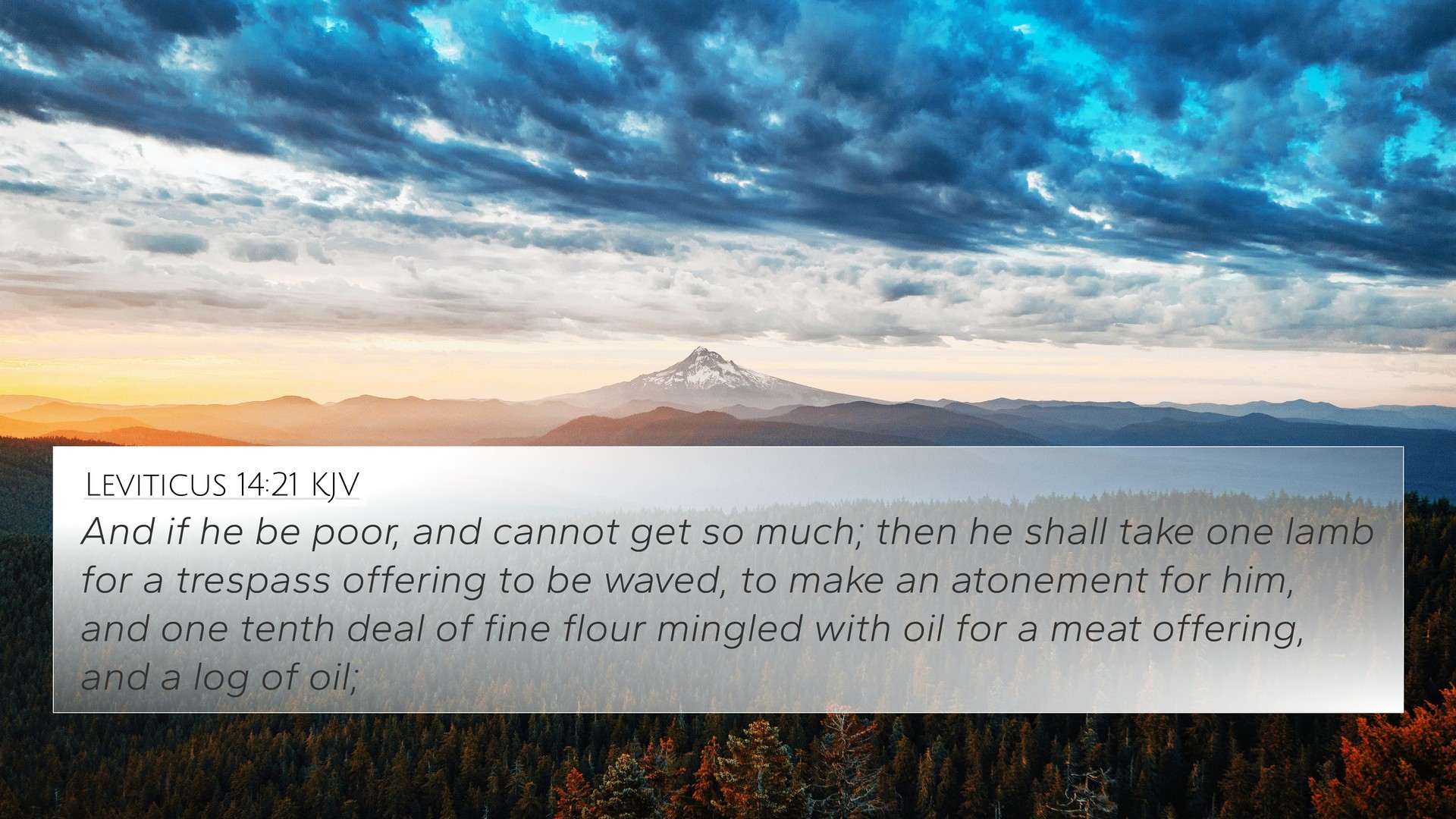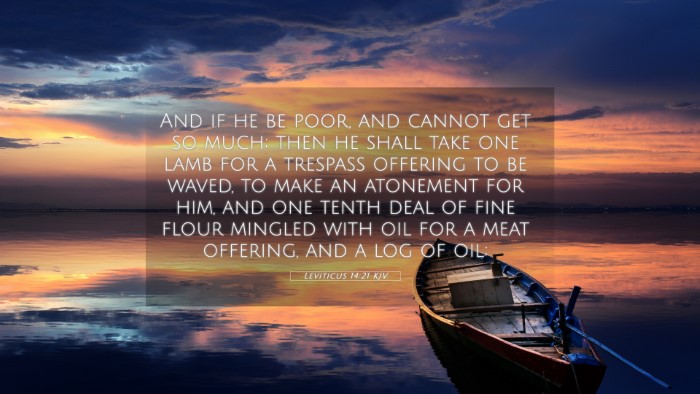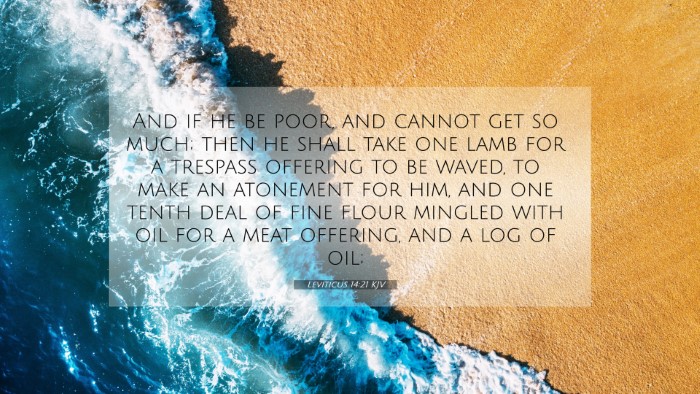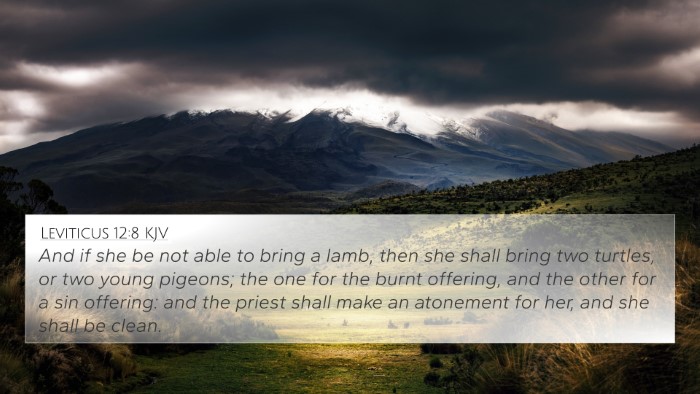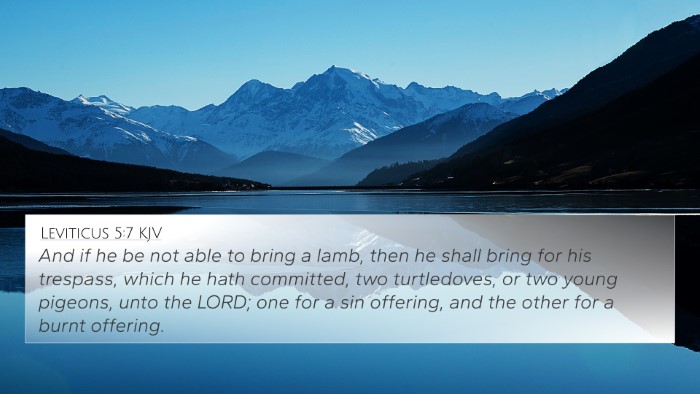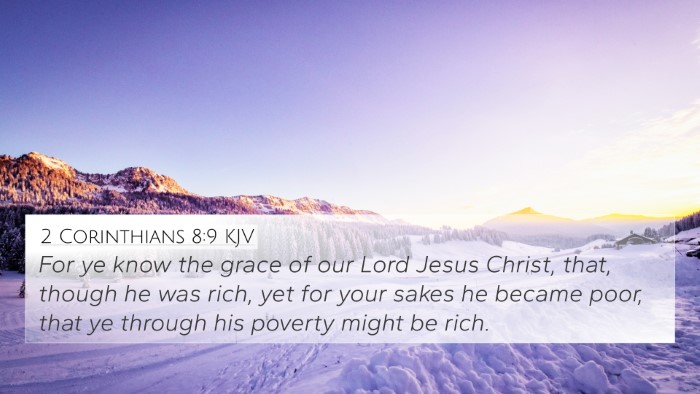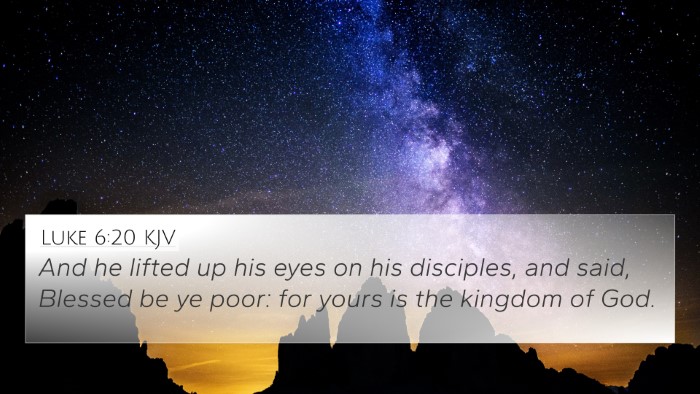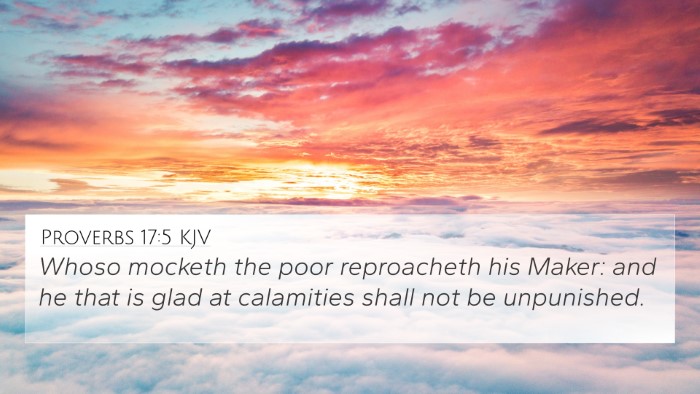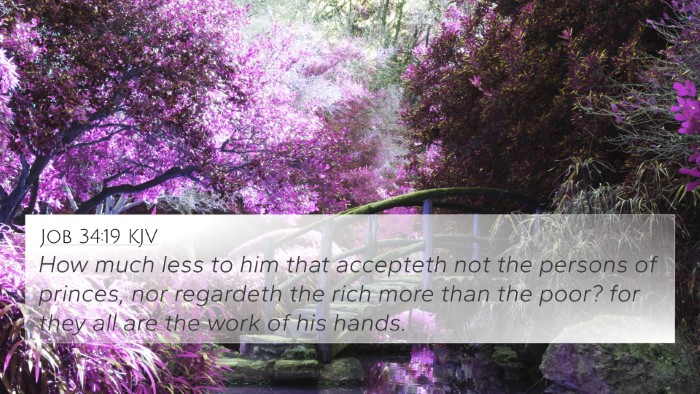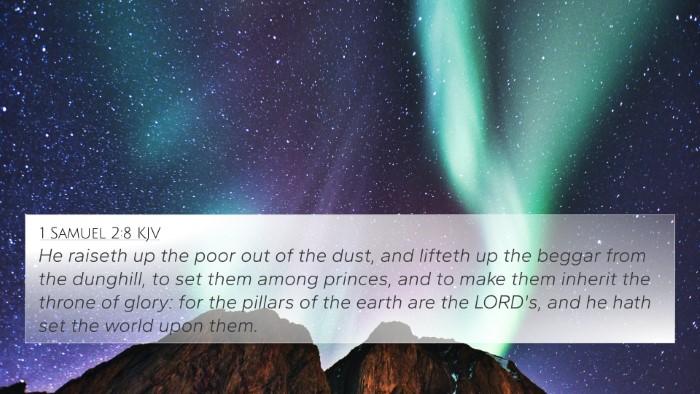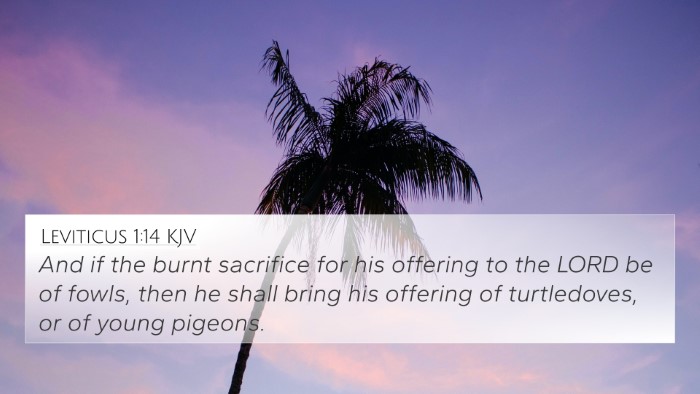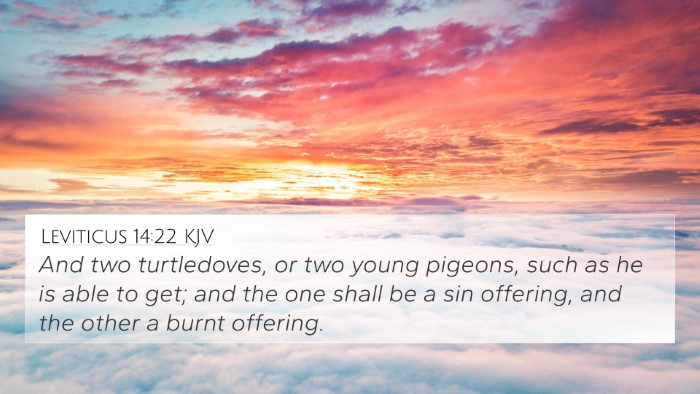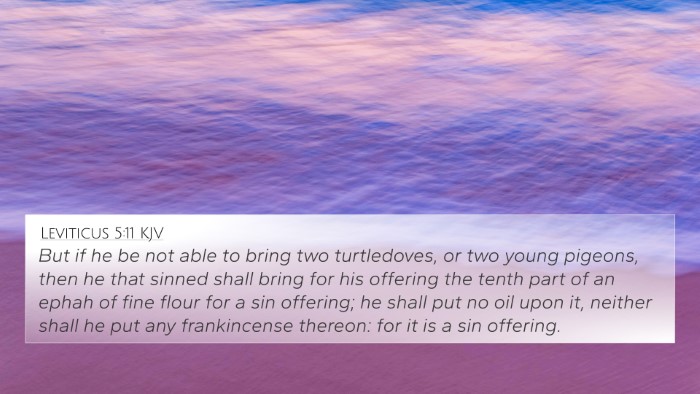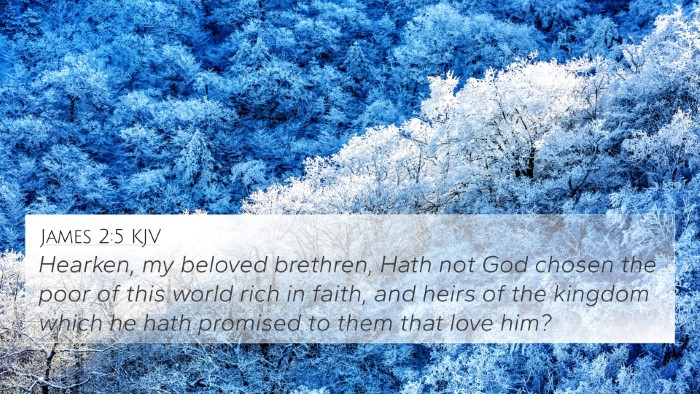Understanding Leviticus 14:21
Leviticus 14:21 states, "And if he be poor, and cannot get so much; then he shall take one lamb for a trespass offering to be waved, to make an atonement for him, and one tenth deal of fine flour mingled with oil for a meat offering, and a log of oil." This verse addresses the provisions made for those who are impoverished when seeking atonement for sin, illustrating God's concern for the disadvantaged.
Summary of Insights:
-
Matthew Henry:
Henry emphasizes the mercy in God's law, noting that even the poor are provided for in sacrificial offerings, ensuring that all are able to approach God for forgiveness and reconciliation.
-
Albert Barnes:
Barnes highlights the significance of the offerings, pointing out that they demonstrate the importance of atonement, and the necessary components symbolize a complete offering to God despite one's financial limitations.
-
Adam Clarke:
Clarke elaborates on the symbolism of the lamb and the flour, connecting them to themes of sacrifice and the provision of sustenance—indicating that both are essential in restoring the relationship between man and God.
Key Themes and Insights
This verse encapsulates several key themes in biblical theology:
- God's provision for the poor
- The importance of atonement and sacrifice
- Symbolism of offerings in relation to spiritual cleansing
Cross-References to Leviticus 14:21
Leviticus 14:21 connects with various other scripture verses that deepen the understanding of its themes:
- Exodus 30:15: Discusses the mercy required in offerings, ensuring equality in worship.
- Luke 4:18: Jesus speaks of proclaiming good news to the poor, reflecting God’s care for the marginalized.
- Matthew 5:3: Blessed are the poor in spirit, underscoring value in humility before God.
- James 2:5: Declares that God has chosen the poor to be rich in faith, reaffirming their place in His kingdom.
- 2 Corinthians 8:9: Explains how Christ became poor for our sake, exemplifying sacrificial love.
- Isaiah 61:1: The Spirit of the Lord is upon Jesus, akin to fulfilling the promise made for the needy.
- Psalms 34:6: Affirms that this poor man cried out, and the Lord heard him—showing God’s attentive grace.
- Hebrews 9:26: Discusses the ultimate sacrifice of Christ fulfilling what the Old Testament sacrifices represented.
- Mark 12:44: Highlights the widow’s offering, demonstrating that the heart behind the gift matters more than the amount.
- 1 Peter 2:24: Connects Christ's taking of sin upon Himself with the purpose of our healing and redemption.
Tools for Cross-Referencing
For a more in-depth study, consider using various tools and resources to aid in cross-referencing:
- Utilizing a Bible concordance to find relevant themes and topics across scripture.
- Engaging in a cross-reference Bible study to explore intricate connections between passages.
- Accessing a Bible cross-reference guide for comprehensive insights into related verses.
- Employing a Bible reference system to regularly track understanding of interrelated texts.
- Considering Bible chain references to link various verses systematically.
Conclusion
Leviticus 14:21 illustrates God's readiness to accommodate the needs of the less fortunate within the framework of atonement. The offerings prescribed show that sincerity and humility accompany true worship, regardless of one’s financial capacity. Through this understanding, believers are encouraged to reflect on the broader themes of compassion and grace found throughout scripture, enabling richer connections and deeper faith.
